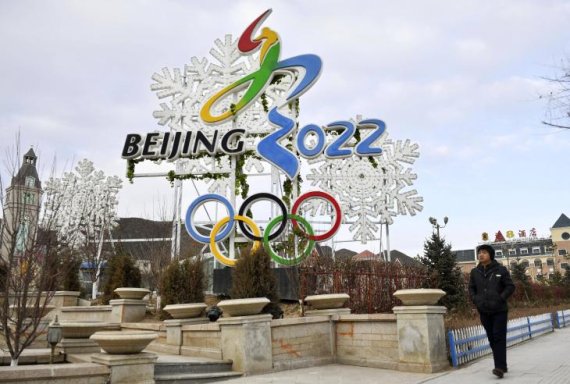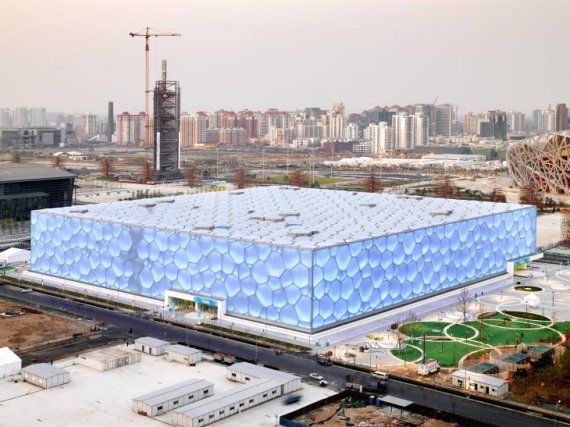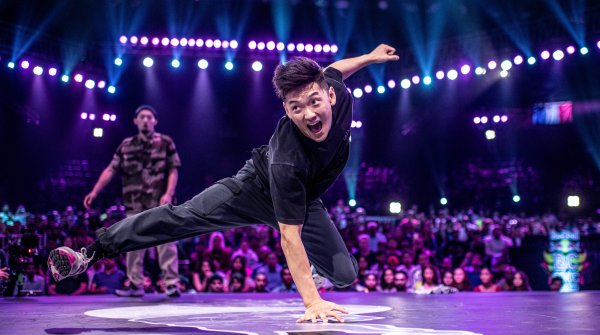
In February 2018, the entire world of winter sport was watching South Korea. This is because from 9 to 25 February, the Olympic Games were taking place in Pyeongchang. One nation was watching a bit more closely, as it was not just the medals and Olympic records which were important. China also watched the organization of the mega-event with eagle-eyes, as in 2022 it will be the giant country itself who will be the host.
In theory, China already passed its baptism of fire in 2008 with the summer Olympic Games in Beijing, but winter games for a nation that is anything but experienced in winter sports are quite a challenge, even for a self-confident country like China.
At the ISPO Beijing 2018 ISPO.com spoke with the expert Wu Bin, author of the White Book 2017, and Laurant Vanat, chief consultant at Antaeus Ski, about the preparations for Olympia 2022, and where there may be hidden stumbling blocks.
In one point both Bin, who in 2017 presented his annual study on the Chinese skiing industry at the ISPO in Beijing, as well as Vanat were united: China is more than ready for the 2022 Olympics as far as the infrastructure is concerned.
“It is a very ambitious plan, but so far we are even quicker than our colleagues in South Korea over a comparable period of time,” said Bin. “Only the ski infrastructure to be newly built for the Alpine competitions in Yanqing is on a very tight schedule.”
Vanat, author of the international report in snow & mountain tourism, has a similar view and uses a very vivid expression. “If the mountains aren’t high enough, then the Chinese just make them higher,” joked Vanat during a background discussion at the ISPO in Beijing. “Technically, I see no problems at all with the implementation.”
A report from the Olympic committee confirms the statements from the two experts, especially as six of the twelve Olympic venues already exist. Particularly in Beijing, many of the stadiums for the summer games are being pragmatically converted – the Water Cube is simply turned into the Ice Cube. For example, instead of swimming competitions there will now be curling.
Apart from the events in the Chinese capital, competitions will also take place in two other venues, northwest of Beijing. Bobsleigh, luge, skeleton and all Alpine ski competitions will take place in Yanqing, amongst others the Zhangjiakou region with its center Chongli will get the biathlon, ski-jumping and all of the snowboard disciplines.

At the same time as the sporting venues are being built which, according to government announcements, should be finished by the end of 2019, the connections to Yanqing and the Zhangjiakou region are to be improved with a high-speed train, which should reduce the journey time from Beijing from what is currently three to four hours down to 50 minutes.
Apart from significantly straightening out the construction schedule, the recycling of the venues has another big advantage, as “it was immensely important for the National Olympic Committee and for China’s government to learn from the mistakes made at Sotschi in 2014,” said Wu Bin. China absolutely wants to avoid the mushrooming costs, so “the costs are planned to be three billion euros instead of the 15 billion for Sotschi,” explained Vanat.
Despite their overall confidence, the two experts have also identified a few problems, which may not be so easy to resolve as building a few more ski runs, stadiums or accommodation blocks. For, apart from their ambitious construction plans, China’s government has also decreed that, by 2022, 300 million active sportsmen and women should get onto the ski runs and skating rinks and into the half-pipes.
“I see that as the much greater challenge,” said Wu Bin. “Especially when you consider that only two percent of the Chinese go skiing for a second time after their first experience of skiing.” To take some action against the negative experiences, local government is investing heavily in youth development, for example offering schoolchildren free ski passes and training courses.
China is really being serious with its winter-sport plans, its organization is impressive and maybe it will even work out for China with the medals which are so important for its sporting self-esteem. In comparison to Beijing 2008 with 48 gold medals (100 in total) so far, in the winter games from 1980 to 2014, China has only managed a total of twelve gold medals.
 Sports BusinessNew trend sports at the 2028 Olympics
Sports BusinessNew trend sports at the 2028 Olympics
- Awards
- Mountain sports
- Bike
- Fitness
- Health
- ISPO Munich
- Running
- Brands
- Sustainability
- Olympia
- OutDoor
- Promotion
- Sports Business
- Textrends
- Triathlon
- Water sports
- Winter sports
- eSports
- SportsTech
- OutDoor by ISPO
- Heroes
- Transformation
- Sport Fashion
- Urban Culture
- Challenges of a CEO
- Trade fairs
- Sports
- Find the Balance
- Product reviews
- Newsletter Exclusive Area
- Magazine




